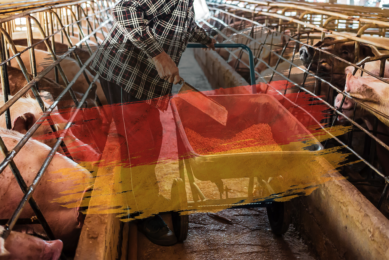EU food safety agency denies ties to biotech industry

The European Food Safety Authority has defended its independence from the biotech industry following renewed accusations from environmentalists that the EU agency ignores evidence of the potential health risks of genetically modified products.
Tipping off the accusations was a study by the University of Caen, published last month, which found that rats fed on a diet containing NK603 – a maize seed variety doused with Monsanto’s Roundup herbicide – or given water with Roundup at levels permitted in the United States, died earlier than those on a standard diet.
The EU food agency’s initial review said the analysis contained in the study, led by biologist Gilles-Éric Séralini, was insufficient and asked for additional evidence.
EFSA Executive Director Catherine Geslain-Lanéelle told journalists in Brussels on Friday (12 October) that EFSA’s review had been conducted by seven to eight people and was also backed by the Dutch and German risk assessment authorities.
“This is about the quality of scientific data. The data you are using should respect good scientific standard. The debate has sometimes been a bit too emotional,” she said.
EFSA’s executive director added that she believes the debate has been specifically fierce this time, due to the photos published by the Caen researchers showing rats with tumours and abnormal organs.
No close ties
Asked by EurActiv whether EFSA listens too carefully to the biotech industry, Geslain-Lanéelle said: “I would like to say that there is no evidence of that. We regularly have meetings with NGOs and organisations like Friends of the Earth. We invite them. Some organisations might want that impression to circulate, but it’s untrue.”
She stressed that EFSA has “very strict” rules when it comes to its staff of experts, advisors, management and assistants to make sure they do not have a conflict of interest. For example, people who have worked for the pesticide industry cannot be considered for a job at EFSA.
No opinion about GMOs
Even though EFSA “has nothing to protect but public health”, the food agency does not have an opinion about whether GMO food products belong in Europe.
“It’s not our role to say whether we like GMOs or not,” Geslain-Lanéelle said. “We are just here to access the risk. This does not ease our work because we are scientists and we work in a very political environment,” she added.
Geslain-Lanéelle also added that EFSA is “open”, and new scientific evidence will be taken seriously as it might make the food agency reconsider an assessment of previous scientific studies.
From 2007-2011, EFSA has had seven requests of publishing data. Geslain-Lanéelle said EFSA’s data have been made public and shared as it is not confidential, but it is not available online. In general, it is the European Commission which decides when data in a report should be confidential. Usually, that applies to sequences of genes for GMOs.











